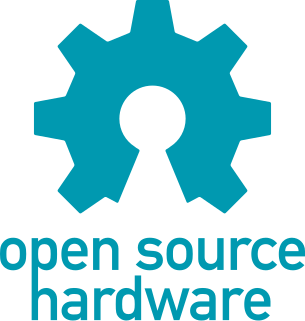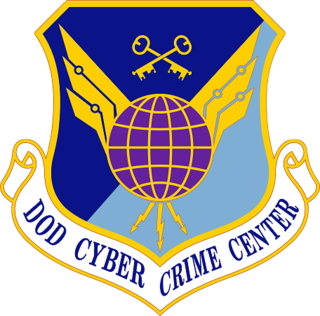Related Research Articles

An application-specific integrated circuit is an integrated circuit (IC) chip customized for a particular use, rather than intended for general-purpose use. For example, a chip designed to run in a digital voice recorder or a high-efficiency video codec is an ASIC. Application-specific standard product (ASSP) chips are intermediate between ASICs and industry standard integrated circuits like the 7400 series or the 4000 series. ASIC chips are typically fabricated using metal-oxide-semiconductor (MOS) technology, as MOS integrated circuit chips.
Total cost of ownership (TCO) is a financial estimate intended to help buyers and owners determine the direct and indirect costs of a product or service. It is a management accounting concept that can be used in full cost accounting or even ecological economics where it includes social costs.

In industry, Product Lifecycle Management (PLM) is the process of managing the entire lifecycle of a product from its inception through the engineering, design and manufacture, as well as the service and disposal of manufactured products. PLM integrates people, data, processes and business systems and provides a product information backbone for companies and their extended enterprises.
Commercial software, or seldom payware, is a computer software that is produced for sale or that serves commercial purposes. Commercial software can be proprietary software or free and open-source software.

Open-source hardware (OSH) consists of physical artifacts of technology designed and offered by the open-design movement. Both free and open-source software (FOSS) and open-source hardware are created by this open-source culture movement and apply a like concept to a variety of components. It is sometimes, thus, referred to as FOSH. The term usually means that information about the hardware is easily discerned so that others can make it – coupling it closely to the maker movement. Hardware design, in addition to the software that drives the hardware, are all released under free/libre terms. The original sharer gains feedback and potentially improvements on the design from the FOSH community. There is now significant evidence that such sharing can drive a high return on investment for the scientific community.
Customised software is software that is specially developed for some specific organization or other user. As such, it can be contrasted with the use of software packages developed for the mass market, such as commercial off-the-shelf software, or existing free software.
Commercial off-the-shelf or commercially available off-the-shelf (COTS) products are packaged or canned (ready-made) hardware or software, which are adapted aftermarket to the needs of the purchasing organization, rather than the commissioning of custom-made, or bespoke, solutions. A related term, Mil-COTS, refers to COTS products for use by the U.S. military.

The systems architect is an information and communications technology professional. Systems architects define the architecture of a computerized system in order to fulfill certain requirements. Such definitions include: a breakdown of the system into components, the component interactions and interfaces, and the technologies and resources to be used in its design and implementation.
A unidirectional network is a network appliance or device that allows data to travel in only one direction. Data diodes can be found most commonly in high security environments, such as defense, where they serve as connections between two or more networks of differing security classifications. Given the rise of industrial IoT and digitization, this technology can now be found at the industrial control level for such facilities as nuclear power plants, power generation and safety critical systems like railway networks.

A computer appliance is a home appliance with software or firmware that is specifically designed to provide a specific computing resource. Such devices became known as appliances because of the similarity in role or management to a home appliance, which are generally closed and sealed, and are not serviceable by the user or owner. The hardware and software are delivered as an integrated product and may even be pre-configured before delivery to a customer, to provide a turn-key solution for a particular application. Unlike general purpose computers, appliances are generally not designed to allow the customers to change the software and the underlying operating system, or to flexibly reconfigure the hardware.
A paperless office is a work environment in which the use of paper is eliminated or greatly reduced. This is done by converting documents and other papers into digital form, a process known as digitization. Proponents claim that "going paperless" can save money, boost productivity, save space, make documentation and information sharing easier, keep personal information more secure, and help the environment. The concept can be extended to communications outside the office as well.

An electronic shelf label (ESL) system is used by retailers for displaying product pricing on shelves. The product pricing is automatically updated whenever a price is changed under the control of a central server. Typically, electronic display modules are attached to the front edge of retail shelving.
A specification often refers to a set of documented requirements to be satisfied by a material, design, product, or service. A specification is often a type of technical standard.
Proprietary software, also known as non-free software or closed-source software, is computer software for which the software's publisher or another person reserves some licensing rights to use, modify, share modifications, or share the software, restricting user freedom with the software they lease. It is the opposite of open-source or free software. Non-free software sometimes includes patent rights.

The Department of Defense Cyber Crime Center (DC3) is designated as a Federal Cyber Center by National Security Presidential Directive 54/Homeland Security Presidential Directive 23, as a Department of Defense (DoD) center of excellence for Digital and Multimedia (D/MM) forensics by DoD Directive 5505.13E, and serves as the operational focal point for the Defense Industrial Base (DIB) Cybersecurity program. DC3 operates as a Field Operating Agency (FOA) under the Inspector General of the Department of the Air Force.

Linux on IBM Z is the collective term for the Linux operating system compiled to run on IBM mainframes, especially IBM Z and IBM LinuxONE servers. Similar terms which imply the same meaning are Linux on zEnterprise, Linux on zSeries, Linux/390, Linux/390x, etc. The three Linux distributions certified for usage on the IBM Z hardware platform are Red Hat Enterprise Linux, SUSE Linux Enterprise, and Ubuntu.

GSA FEDSIM provides assisted acquisition support for information technology systems and services, and professional services, to other U.S. Government agencies on a fee for service basis. FEDSIM’s business lines include system and network operations and maintenance, development of new applications, purchases of hardware and software, and many other IT goods and services, as well as professional services such as logistics. FEDSIM contracts with large and small private sector companies for these systems and services.
A bare-metal server is a physical computer server that is used by one consumer, or tenant, only. Each server offered for rental is a distinct physical piece of hardware that is a functional server on its own. They are not virtual servers running in multiple pieces of shared hardware.
Open source is source code that is made freely available for possible modification and redistribution. Products include permission to use the source code, design documents, or content of the product. The open-source model is a decentralized software development model that encourages open collaboration. A main principle of open-source software development is peer production, with products such as source code, blueprints, and documentation freely available to the public. The open-source movement in software began as a response to the limitations of proprietary code. The model is used for projects such as in open-source appropriate technology, and open-source drug discovery.
Non-developmental item (NDI) is a term used for products procured by the United States federal government which do not require further development or require only minimal modification. Commercial-off-the-shelf (COTS) and Government-off-the-shelf (GOTS) are two subtypes of NDI.
References
- ↑ "Government Off-The-Shelf - Glossary CSRC". Computer Security Resource Center. National Institute of Standards and Technology. Archived from the original on 2020-11-30. Retrieved 27 February 2021.
- ↑ "DISA - Data Rights/Intellectual Property". Defense Information Systems Agency . Archived from the original on 2020-10-16. Retrieved 27 February 2021.
- ↑ "Open Source Software FAQ". Department of Defense Chief Information Officer. United States Department of Defense. Archived from the original on 2021-02-27. Retrieved 27 February 2021.
- ↑ Sankar, Shyam. "When is GOTS not in the national interest?". FedScoop. Scoop News Group. Archived from the original on 2021-02-27. Retrieved 27 February 2021.